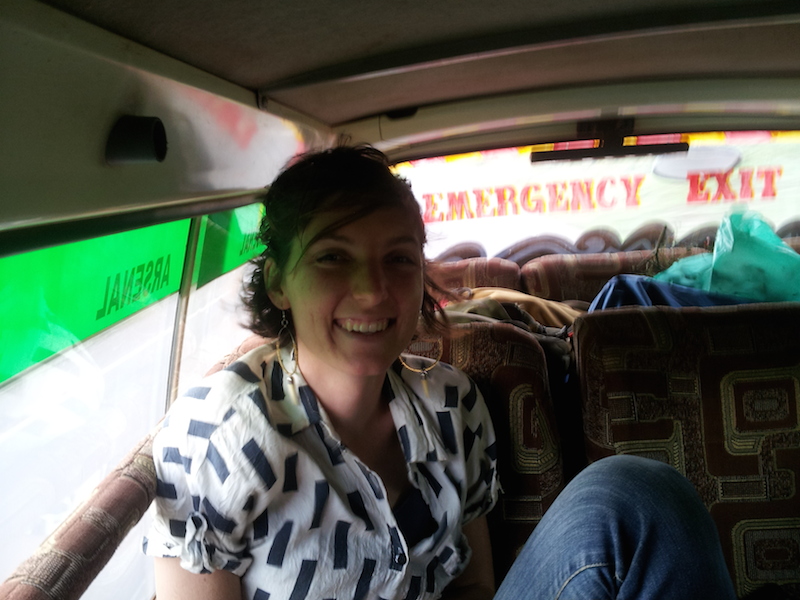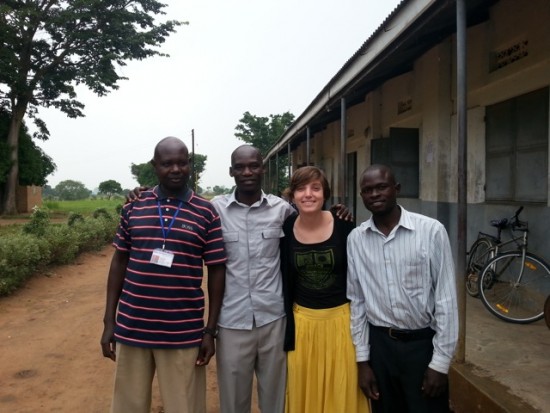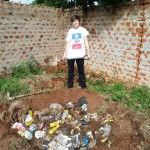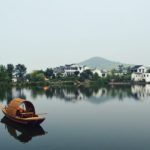Dealing with Reverse Culture Shock and Redefining Home

 I left Uganda one week ago. It’s tempting to revisit what I began to write on the plane – a post providing some account of my mom and sister visiting me in the place I love, what it is to say goodbye, and the adventure that was to come by returning home – but I had to scrap it. Because dealing with reverse culture shock while coming home hasn’t been easy, though “coming home” may be an inaccurate phrase altogether.
I left Uganda one week ago. It’s tempting to revisit what I began to write on the plane – a post providing some account of my mom and sister visiting me in the place I love, what it is to say goodbye, and the adventure that was to come by returning home – but I had to scrap it. Because dealing with reverse culture shock while coming home hasn’t been easy, though “coming home” may be an inaccurate phrase altogether.
In a TED Talk that explores the definition of home, author Pico Iyer reflects on how the loss of his physical home – among other experiences – led to the realization that “home would have to be whatever [he] carried around inside [him].” I imagine that for most Pink Pangea readers this is a realization that requires little elaboration – and Iyer himself hints at much of the nuance better than I ever could. But his reflections on this sort of identity crisis – and how our world today is less defined by sovereign borders and birthplace identity – has so far provided the only succinct space of genuine reflection for me in the past few days.
Home isn’t providing the comfort I was expecting, and that I longed for at various points throughout my year abroad. I find myself looking for the emergency exit.
While “nowadays, at least some of us can choose our sense of home, create our sense of community, fashion our sense of self, and in so doing maybe step a little beyond some of the black and white divisions of our grandparents’ age,” the “terrific liberation” and “fantastic privilege” of such movement is not without challenges.
One of the most significant is navigating what that privilege is in itself, and identifying where it is rooted. But on a considerably personal level, solidifying our sense of self amongst a constantly changing environment and a barrage of expectations in each place can become a sort of feat.
In Uganda, I am the one who didn’t stay for long enough. I am one of many who come and go, seemingly as they please. I am one who, both knowingly or unknowingly, establishes connections and promises to be fulfilled according to my own will. In Texas, I am the one who was gone for too long, shouldn’t leave again, and returned “safe and sound.” I am pegged as worthy of vicarious living yet asked for only shallow encapsulations of my experience. My life abroad becomes a separate and distinct reality that should be summed up in only a few short sentences.
Dealing with Reverse Culture Shock and Redefining Home.
After living abroad, returning to the US has felt like someone laid a brick on the brake pedal. I’ve re-entered a pre-existing social network, set within a labyrinth of highways and excess. I expected the reverse culture shock to be less severe, but no matter how much I predicted or anticipated, “home” is being reconstructed in my mind and the world at-large seems to pass me by at high speeds. I’m thinking of all the places I’ve never been. I’m finding solace in certain songs, both fast and slow. I’m suppressing the wanderlust but in the end my feet are shaking. I’m antsy. I want to keep moving forward, accelerating, changing directions.
Home isn’t providing the comfort I was expecting, and that I longed for at various points throughout my year abroad. I find myself looking for the emergency exit.
I’m suppressing the wanderlust but in the end my feet are shaking. I’m antsy. I want to keep moving forward, accelerating, changing directions.
But Iyer gave me pause. Staying in motion wouldn’t guarantee me the sense of comfort I’m searching for, either, because “movement [is] only as good as the sense of stillness that you [can] bring to it to put it into perspective.”
As I continue to settle in “at home,” I’m fighting the sensation of the brakes but searching for the clarity that will come with stillness. As my definition of home continues to evolve, the fog on the windshield will begin to clear. The road ahead will be visible – and I’ll move forward with more confidence on one path chosen from among the many I’m privileged to have in front of me.

Dealing with Reverse Culture Shock and Redefining Home photo by Kate Murray.









I remember those awful mini vans, the interior shot took me straight back…